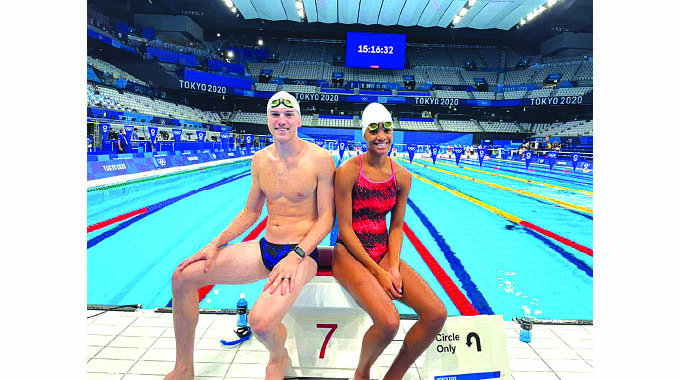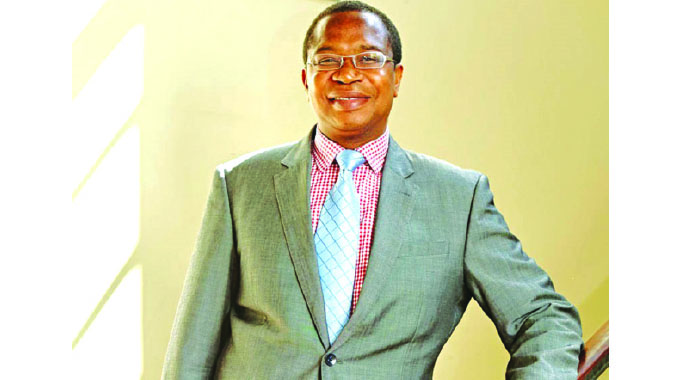Editorial Comment: Games team shows what we can do if more had participated

Zimbabwe’s small contingent at the Tokyo Olympics have not been bringing medals home, but they have not disgraced their country or themselves being in the general pack of competitors rather than on the medal podium, but being “average” at the Olympics means you are very good indeed.
We need to remember that the Olympics bring together the best on planet Earth, and just achieving the qualifying times required to be allowed to compete means you are among the best in the world and have a degree of commitment to your sport that is staggering, since a trip to Tokyo meant hours of training every day.
To put the contingent’s team into perspective, and to show what it means to be an Olympic-class athlete, if they had been one or two percent faster, and in the swimming events that meant a second faster, they would be on the medal threshold. They were that good.
Of particular importance are the younger members of the contingent, since these are the ones whom, if they maintain their commitment, we can hope for more at Paris in three years time. There is talk every Olympics about the value of gaining experience, sometimes not really justified but sometimes critical.
Here we do have to look at Donata Katai, our 17-year-old women’s backstroke entry. A great deal rested on her shoulders, particularly the fact that she had already exploded myths that “black people do not swim”. Well she does, and does exceptionally well having already won her events in continental youth championships.
On her arrival back home she gave very level-headed responses in interviews, talking about the incredible experience and what she had gained. She also made it clear that her next goal is getting a decent set of A levels at the end of next year, since she is only in Lower Sixth at Gateway High. That seems very smart.
There are those who recall our last teenage women swimmer in an Olympics, one Kirsty Coventry, who was also a schoolgirl then and who also managed to show she could be in the middle ranks of Olympic swimmers, an incredible achievement. She also then hit the books, got her A-levels, and translated her magnificent swimming times and Olympic participation, along with a good college-entry academic performance, into a swimming scholarship at a good American university.
By the next Olympics, with all that extra high-end training, the advantage of the high level inter-college competition to give her an extra edge, and her continued commitment to excellence, needed a box to bring back all her medals.
That environment of high-level competition cannot be neglected. It is all very well racing day after day against the clock, but there is that special extra when you win against the best. Donata winning her Olympic heat will know what we mean.
Here we need to also look at the sort of support these top-end athletes get from families. Desdemona and Luigi Katai give the example of what is required. Their little girl, in the early years of primary school, found she loved swimming and was rather good, at least in a Zimbabwean schools context. Her parents went with this, and that must have meant a lot of commitment and time, taking her for daily training, sitting at the poolside as she swam, offering encouragement when things did not work out so well, joining in her exultation when it did.
Children often excel in something that their parents never really thought about, but backing a child’s talent and dreams is so critical if that child is ever to have a chance of living those dreams.
A second point to note in our swimming progress as a country. Our best swimmers come from families and go to schools where they have a chance to move forward: Coventry was at Dominican Convent and Katai is at Gateway High. Regrettably, outside a very small group of schools, there is not much chance for even a natural swimming athlete to progress.
This was supposed to be different. One reason for placing the National Aquatic Centre in Chitungwiza way back when Zimbabwe was preparing for the All-Africa Games in 1995 was to leapfrog over this problem and start having facilities in places where there were literally none. Like most schools in Zimbabwe, Chitungwiza and south Harare schools do not have pools.
Right now that investment is a white elephant, used for parties on Friday nights when there is no lockdown and for wedding receptions on Saturdays. There is no swimming. We do not know how many other top natural swimmers never even learned to swim, let alone compete, and we never found out how many thousand schoolchildren could at least have fun at school galas, even if they were obviously never going to be school team captains, let alone go to the Olympics. Even in older Harare suburbs, most municipal pools are closed for repairs that never come.
This is the same in many other sports. At most Olympics, Zimbabwe sends a rower. And that person comes from a tiny pool of athletes. A handful of schools, mostly in or near Harare, have rowing teams and there is a small group of enthusiastic adults who take up the oars each week. But we still manage to find someone, although not a pair or a four, let alone an eight, who can meet the Olympic qualifying times.
To some extent we are helped by the fact that in rowing each country is allowed a maximum of one entry in each event, and even then you have to meet the qualifying time. That means you can be 500th in the world and still go to the Olympics and be second best and have to watch them at home. Yet this is a sport where Zimbabwe has advantages, lots of dams and decent weather. Boats are pricey but fleets can be built up with sponsors and coaches can be found. Those who follow the sport in Zimbabwe will note that when the “Olympic hope” is racing they usually have to wait a bit after crossing the finish line to congratulate the runner up. Yet a larger pool will produce better teams, as some very small countries have shown.
You do not have to be a large country to win at the Olympics. Jamaica is very small, and always gets on the medal table, largely in sprint events, because they look for talent in schools, test for commitment and then concentrate their funding on a few events. This is something our sports administrators have to now think about.
And meanwhile, congratulations to our team in Tokyo. You have shown the way, dispelled myths and flown the flag high. We hope you achievements will inspire others.











Comments